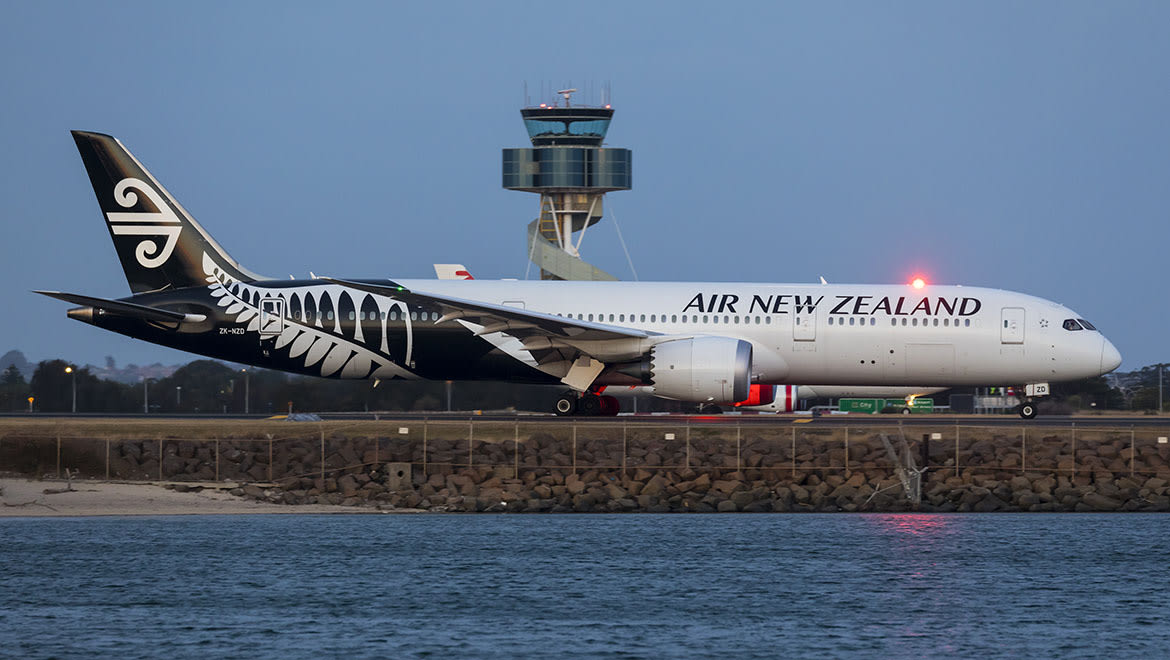
Air New Zealand has raised the number of single-use plastic items it plans to cut in 2019 to 55 million.
The figure is above the 24 million target unveiled in October 2018 and will be achieved by replacing 29 million plastic cups used on domestic and international flights with a recyclable alternative, as well as using getting rid of coffee cups in favour of cups made from plants.
Further, Air New Zealand said on Monday it would no longer provide individual plastic water bottles in business class, premium economy and for those in Works Deluxe seats on short-haul international flights. This would stop 460,000 bottles from going to landfill.
The airline also planned to stop using individual plastic sauce packets on all international flights from the end of October.
“Single-use plastic is a highly topical and visible issue for us and our customers, so we’re really pleased to be able to share this progress to celebrate Plastic Free July,” Air New Zealand acting head of sustainability Anna Palairet said in a statement.
“The lack of composting infrastructure available in New Zealand is a challenge so we have been focused on reducing the amount of single-use plastic products we purchase in the first place.
“It’s great to see more and more customers are bringing their reusable drink bottles and keep cups on board, and we encourage people to do this – our cabin crew team is happy to fill these.”
In addition to the 460,000 water bottles, figures released by Air New Zealand showed it had already removed 7.1 million plastic stirrers, 260,000 toothbrushes, 260,000 eye mask wrappers and 3,000 straws from its operations.
| Single use plastic item | Items of waste avoided per annum (approx.) |
| substituted by end of October | |
| Plastic cups | 29 million (up from 7.4 million) |
| Café cups and lids | 15.5 million (up from 7.3 million) |
| Cheese trays | 550,000 |
| Atlas lids | 45,000 |
| Other plastic bags | 1.5 million |
| Sauce packets | 200,000 |
| Already substituted/removed | |
| Water bottles | 460,000 |
| Stirrers | 7.1 million |
| Toothbrushes | 260,000 |
| Eye mask wrappers | 260,000 |
| Straws | 3,000 |
Source: Air New Zealand
Sustainability has been an increasing focus in aviation.
International Air Transport Association (IATA) estimates suggested the airline industry generated 6.1 million tonnes of cabin waste in 2018.
This was expected to double over the next decade unless airlines made changes to their operations.
There was also a role for governments, with IATA noting regulatory restrictions in many countries currently inhibit reuse and recycling of cabin materials.
“All cabin waste is subject to national waste management controls that limit pollution, but many countries have gone further with their regulations, introducing restrictions on catering waste from international flights to protect their agricultural sector (in respect to animal health),” IATA said in its environment briefing at the recently concluded annual general meeting in Seoul, South Korea in early June.
“The regulations often lead to the incineration of all cabin waste with limited ability to reuse and recycle.”
In response, IATA said it had developed cabin waste recycling guidance for international flights to ensure airlines were able to meet strict regulatory requirements while being flexible enough to accommodate a wide variety of airline operating models.
The airline trade body also held a sustainable cabin forum with Hi Fly, the Mirpuri Foundation and European Commissioner Karmenu Vella in mid-May that aimed to “develop and share best practices for stakeholders on single-use plastic and catering waste”.
In May, Qantas conducted a trial of what it described as a “zero waste” commercial flight, where all the waste produced on a Boeing 737-800 flying a domestic service from Sydney to Adelaide was reused, recycled or disposed of via recycling. The Qantas group of airlines was aiming to reduce the amount it sent to landfill by 75 per cent by the end of 2020.
















PAUL
says:I would actually prefer to drink WIne from a Glass or hard washable plastic flute rather than a single use plastic cup any day..
Another interesting topic AirNZ working on US Navy turbines, I think they used to work on F404’s for the RAAF years ago or maybe still do?
Hands in many pies..
https://www.nzherald.co.nz/business/news/article.cfm?c_id=3&objectid=12246853&utm_source=outbrain&utm_medium=busirss&utm_campaign=NZH%20Brand&utm_content=tdob
Jeff Carswell
says:Well done Air New Zealand. It would be much nicer to have glass glasses.